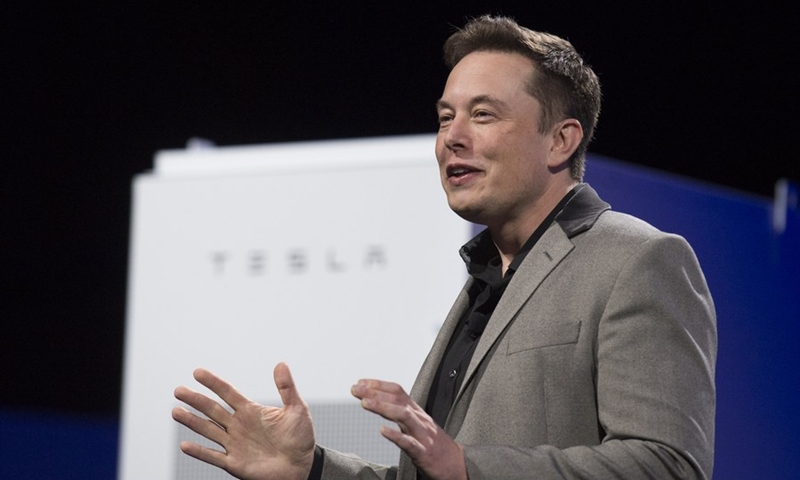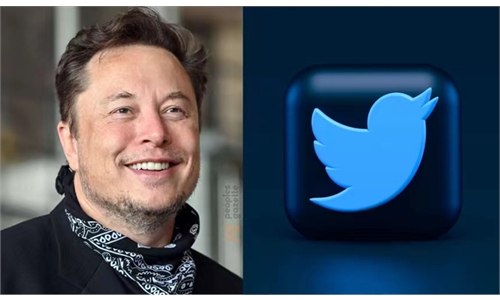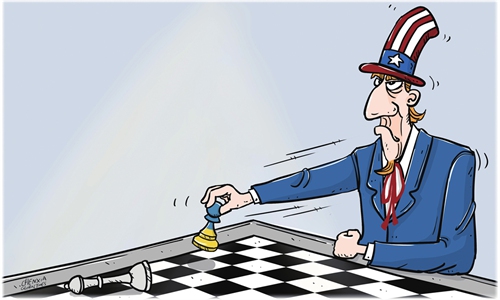Musk's peace plan challenges Western political correctness, showing no absolute freedom of speech

Tesla CEO Elon Musk File Photo: Xinhua
Tesla CEO Elon Musk once said he is a "free speech absolutist," but he may soon find the grave reality that the US' absolute "freedom of speech" could be nothing but a pipe dream, as the freedom of speech in the US and West must be based on political correctness, and only on that.
Musk has made himself a target of Western public opinion attack after he offered his suggestions for ending the Russia-Ukraine conflict. On Tuesday, the tech billionaire proposed on Twitter that new referendums should be held under the UN supervision to determine the fate of Russian-controlled regions - "Russia leaves if that is will of the people," that Crimea be made formally part of Russia, that water supply to Crimea assured and that Ukraine agree to neutrality.
As the proposal is clearly not in line with prevailing views in the West regarding the Russia-Ukraine conflict, Musk has drawn the ire of many pro-Ukraine Twitter users as well as Ukrainian officials including President Volodymyr Zelenskyy. In response, Zelenskyy tweeted a poll asking: "Which @elonmusk do you like more? One who supports Ukraine [or] one who supports Russia." As of the press time, the poll has garnered over 2.4 million votes with over 78 percent preferring a Musk supporting Ukraine.
Musk was considered popular and welcomed when his company sent equipment to Ukraine earlier this year, but he was strongly bombarded for proposing terms which are deemed as favoring Russia. It seems the US and West advocate for "freedom of speech," but only allow the freedom of supporting Ukraine.
After the outbreak of the Russia-Ukraine conflict, anti-Russia and pro-Ukraine has become the political correctness in the West.
"Under the narrative jointly created by Western politicians and media, Russia is authoritarian while Ukraine is a democratic country under authoritarian attack, thus supporting Ukraine is equivalent to supporting Western democracy. This has become the main logic of Western narrative and what is politically correct," said Zhang Tengjun, deputy director of the Department for Asia-Pacific Studies at the China Institute of International Studies. He noted that based on this logic, there hasn't been much room for freedom of speech when it comes to the Russia-Ukraine conflict at all.
There has never been, and will never be, absolute freedom of speech in the West. Instead, the so-called free speech has many taboos which are increasingly expanding. For instance, after the Nord Stream leaks, any comments that disapproved Russia is likely the culprit have been censored in the US. Columbia University economics professor Jeffrey Sachs was stopped and censured during a live TV interview on Monday with Bloomberg when he suggested that the US and Poland might be responsible for the mysterious leaks on the Nord Stream gas pipeline. "I know this runs counter to our narrative and you're not allowed to say these things in the West," he bluntly said after his remarks were intervened by the host.
The boundary of free speech in the US and West has been shrinking. When anti-Russia and pro-Ukraine has become the political correctness, any remarks having terms favoring Russia will be deemed as crossing the red lines and unacceptable. No wonder Musk's proposal of peace ̶ feasible or not ̶ has placed him in the center of a public opinion storm.
The toxic anti-Russia public opinion atmosphere in the West won't help solve conflicts and foster peace at all. As argued by professor Sachs, the relentless Western narrative that the West is noble while Russia is evil is simple-minded and extraordinarily dangerous. It is an attempt to manipulate public opinion, not to deal with very real and pressing diplomacy.
Musk is active on social media platforms and has become one of the most influential public opinion leaders in the West. He seemingly doesn't care about political correctness. But he apparently overestimates his influence and underestimates the power of political correctness.
His proposal of peace has posed challenges to not only political correctness, but also Washington's geopolitical calculations. The Joe Biden administration, which attempts to use the Russia-Ukraine conflict to drag down Russia, vowed the war "will not end with a Russian defeat of Ukraine in Ukraine." Musk also expressed his worries over the death toll and the risk of a nuclear war from the Russia-Ukraine conflict, saying "If you care about the people of Ukraine, seek peace." But, under the Western political correctness and geopolitical calculations, is there anyone who really cares about the lives in Ukraine? Unfortunately no.
The author is a reporter with the Global Times. opinion@globaltimes.com.cn



